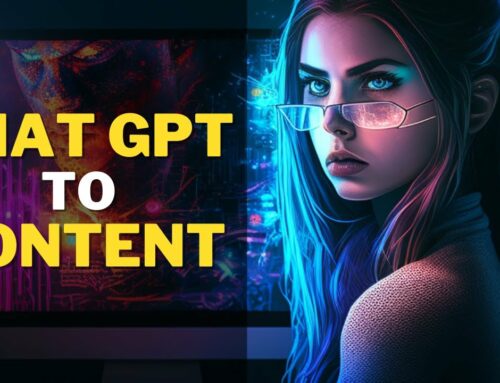In today’s fast-paced customer service landscape, businesses are constantly seeking innovative ways to enhance their customer experience. With the introduction of ChatGPT, an advanced AI language model developed by OpenAI, organizations can now leverage this powerful tool to revolutionize their customer service interactions. By tapping into ChatGPT’s extensive knowledge base and impressive conversational abilities, businesses can provide real-time assistance, answer inquiries, and address customer concerns in a timely and efficient manner. With ChatGPT as a valuable asset, companies can elevate their customer service strategies, delivering personalized and effective solutions to enhance customer satisfaction and loyalty.
Understanding ChatGPT
What is ChatGPT?
ChatGPT is a language model developed by OpenAI that is designed to generate human-like text responses in a conversational manner. It uses a deep learning approach known as transformer-based models to understand and respond to user inputs based on vast amounts of training data.
How does ChatGPT work?
ChatGPT works by leveraging the power of neural networks to process and understand natural language inputs. It has been trained on a vast range of text data from the internet and other sources, enabling it to learn patterns, context, and nuances of human conversation. When a user interacts with ChatGPT by inputting a message or query, the model generates a response by predicting the most likely continuation of the conversation based on its training.
Training data for ChatGPT
ChatGPT benefits from a diverse range of training data that includes internet text, books, articles, and various other sources. However, it is important to note that the model may inadvertently pick up biases or generate incorrect information due to the nature of the data it has been trained on. OpenAI has implemented filtering mechanisms and fine-tuning processes to minimize biases and improve the accuracy of ChatGPT’s responses.
Capabilities of ChatGPT
ChatGPT has the ability to engage in human-like conversation, providing a range of responses to user inputs. It can answer questions, provide recommendations, offer explanations, and engage in interactive dialogues. While it excels in generating creative and contextually relevant responses, it is important to understand that it may sometimes produce nonsensical or inaccurate answers. OpenAI is continuously working to improve the capabilities and limitations of ChatGPT through ongoing research and development.
Role of Customer Service in Business
Importance of customer service
Customer service plays a vital role in the success of a business. It is the primary point of contact for customers to address their concerns, seek assistance, and provide feedback. Effective customer service helps build trust and loyalty, enhances customer satisfaction, and improves brand reputation. By delivering exceptional customer experiences, businesses can foster long-lasting relationships with their customers, leading to increased customer retention and repeat business.
Challenges faced by customer service teams
Customer service teams often encounter various challenges while managing customer inquiries and issues. The volume and diversity of queries can be overwhelming, making it challenging to provide prompt and accurate responses. Language barriers, limited availability, and delays in service can lead to frustration and dissatisfaction among customers. Additionally, customer service teams may face difficulty handling high volumes of repetitive and mundane queries, resulting in increased workload and decreased efficiency.
Benefits of AI in customer service
AI, such as ChatGPT, offers significant benefits to customer service teams. By leveraging AI-powered chatbots or virtual assistants, businesses can automate responses to common queries, reduce response times, and provide 24/7 support. AI can handle multiple queries simultaneously, freeing up customer service agents to focus on complex or sensitive issues. It can also assist in providing personalized customer interactions, analyzing customer preferences, and improving overall customer satisfaction. Overall, integrating AI into customer service can enhance efficiency, scalability, and the overall customer experience.
Integration of ChatGPT in Customer Service
Why integrate ChatGPT in customer service?
Integrating ChatGPT in customer service provides several advantages. ChatGPT can deliver instant responses, ensuring that customer inquiries are addressed promptly and efficiently. Businesses can harness the power of ChatGPT to handle a wide range of queries, from basic informational requests to more complex issues. By integrating ChatGPT, customer service teams can enhance their ability to handle high volumes of inquiries while maintaining quality and accuracy. Additionally, ChatGPT’s conversational abilities can create engaging interactions, making customers feel heard, understood, and valued.
How to integrate ChatGPT in customer service?
To integrate ChatGPT effectively, businesses can follow a systematic approach. They can start by identifying the areas in their customer service processes where ChatGPT can be most beneficial, such as handling frequently asked questions or providing initial support. Next, businesses can customize and fine-tune ChatGPT to align with their brand voice and industry-specific terminology. It is important to test and evaluate the system thoroughly to ensure the accuracy and reliability of the responses generated. Ongoing monitoring and improvement based on customer feedback can help optimize the integration of ChatGPT into customer service workflows.
Real-life examples of ChatGPT in customer service
Several companies have successfully integrated ChatGPT into their customer service operations. For instance, a telecommunications company introduced a ChatGPT-powered chatbot on their website to handle common customer inquiries, such as billing information and account changes. The chatbot was able to provide instant responses, reducing customer wait times and freeing up customer service agents to handle more complex issues. Another example is an e-commerce platform that implemented ChatGPT to assist customers in finding products, answering product-related questions, and providing recommendations based on their preferences. These real-life examples demonstrate how ChatGPT can be effectively integrated into customer service to enhance efficiency and improve the overall customer experience.
Enhancing Customer Support Efficiency
Providing instant responses
One of the significant advantages of integrating ChatGPT in customer service is the ability to provide instant responses to customer inquiries. ChatGPT can analyze and understand user input in real-time, generating quick and accurate responses. By eliminating the need for customers to wait for a human agent, businesses can enhance their support efficiency and significantly reduce customer wait times.
Handling common customer queries
ChatGPT excels in addressing common and frequently asked questions. By integrating ChatGPT into customer service systems, businesses can automate responses to these queries, ensuring that customers receive accurate and consistent information without human intervention. This enables customer service agents to focus on handling more complex or specialized queries, streamlining the overall support process and improving efficiency.
24/7 availability and scalability with ChatGPT
Traditional customer service teams may have limited availability, leading to delays in response times or even unavailability during non-business hours. By integrating ChatGPT, businesses can provide 24/7 support, ensuring that customers can receive assistance whenever they need it. Additionally, ChatGPT offers scalability, allowing businesses to handle high volumes of inquiries without the need for additional manpower. This scalability ensures that customer support remains efficient even during peak periods or unexpected surges in customer inquiries.
Improving Customer Satisfaction
Personalized customer interactions
ChatGPT can assist in providing personalized customer interactions by analyzing customer preferences and history. By understanding previous interactions and purchase patterns, ChatGPT can offer tailored recommendations, product suggestions, and support based on an individual customer’s needs. This personalized approach helps create a more engaging and satisfying customer experience, strengthening the relationship between the customer and the business.
Understanding customer preferences and needs
Integrating ChatGPT into customer service systems allows businesses to gather valuable insights and data about their customers. Through conversations with ChatGPT, businesses can analyze customer preferences, identify recurring issues, and uncover trends or patterns in customer needs. This information can then be used to improve products, services, and overall customer satisfaction. By understanding their customers better, businesses can tailor their offerings and support to meet the specific needs and expectations of their target audience.
Reducing wait times and customer frustration
Long wait times and delayed responses often lead to customer frustration and dissatisfaction. By leveraging ChatGPT to provide instant responses, businesses can significantly reduce wait times for customers. This immediate availability of support helps resolve issues promptly, minimizing customer frustration. Additionally, ChatGPT’s ability to handle multiple queries simultaneously ensures that customers do not have to wait in a queue, further enhancing customer satisfaction and loyalty.
Addressing Language Barriers
Translation services with ChatGPT
For businesses operating in multilingual environments or catering to customers from diverse backgrounds, language barriers can pose a significant challenge. ChatGPT can assist in addressing these language barriers by acting as a translation service. By inputting messages in one language and receiving responses in another, businesses can overcome language obstacles and provide support to non-native speakers. This feature facilitates effective communication and ensures that language differences do not hinder the customer service experience.
Improving communication with non-native speakers
Non-native speakers often face difficulties when seeking customer support due to language barriers. ChatGPT can bridge this gap by interpreting customer queries accurately and generating responses in a way that is easy for non-native speakers to understand. The model’s ability to comprehend and respond to nuanced language inputs helps ensure clear and effective communication, improving the overall customer experience for non-native speakers.
Localization for global customer service
In a globalized business landscape, localization plays a crucial role in delivering exceptional customer service. ChatGPT can be customized and fine-tuned to adapt to the specific cultural and linguistic preferences of different regions. By integrating localized versions of ChatGPT, businesses can cater to the unique needs of their diverse customer base, resulting in stronger engagement, increased customer satisfaction, and improved brand perception in different markets.
Managing High Volume and Repetitive Queries
Automating responses to common queries
High volumes of repetitive queries can strain customer service teams and slow down response times. ChatGPT can be leveraged to automate responses to these common queries, providing quick and accurate information without the need for human intervention. By automating responses, businesses can handle large volumes of inquiries efficiently, freeing up resources to focus on more complex or specialized requests.
Handling multiple queries simultaneously
Customer service teams often face challenges when handling multiple queries concurrently, especially during peak periods. By integrating ChatGPT, businesses can address multiple customer queries simultaneously, ensuring that each customer receives prompt attention. ChatGPT’s ability to understand and respond to multiple conversations in parallel helps streamline the support process, improving overall efficiency and reducing customer wait times.
Reducing customer service workload
Repetitive and mundane queries consume a significant amount of customer service team’s time and resources. By offloading these queries to ChatGPT, businesses can reduce the workload on customer service agents, allowing them to focus on more complex or specialized issues. The integration of ChatGPT can lead to improved productivity and job satisfaction among customer service teams, as they can dedicate their skills and expertise to resolving critical customer concerns.
Ensuring Data Privacy and Security
Protecting customer information
Data privacy and security are of paramount importance in customer service. When integrating ChatGPT, businesses must ensure that customer information remains protected and secure. It is crucial to implement robust data protection measures, including encryption and secure data storage, to safeguard sensitive customer data. By prioritizing data privacy, businesses can build trust with their customers and ensure compliance with relevant data protection regulations.
Maintaining confidentiality of conversations
Maintaining the confidentiality of conversational data is essential for customer trust and privacy. Businesses integrating ChatGPT must ensure that customer conversations are treated with confidentiality and stored securely. Clear communication and transparency regarding data handling practices, including anonymization and deletion policies, reassure customers that their information is being handled responsibly and in line with privacy expectations.
Adhering to data privacy regulations
Data privacy regulations, such as the General Data Protection Regulation (GDPR) in the European Union, outline strict guidelines for the collection, processing, and storage of customer data. Businesses integrating ChatGPT into their customer service must comply with these regulations. They should obtain customer consent for data collection, ensure appropriate data handling practices, and provide customers with the option to delete their data if desired. Adhering to data privacy regulations not only protects customer rights but also minimizes legal and reputational risks for businesses.
Overcoming Limitations of ChatGPT
Handling sensitive or complex issues
ChatGPT is primarily trained on publicly available text data, which may not cover all possible scenarios, especially sensitive or complex issues. While ChatGPT can assist in addressing basic customer inquiries, it is important to have mechanisms in place to escalate more complex issues to human agents. By integrating ChatGPT with human support, businesses can ensure that sensitive concerns are appropriately addressed and that customers receive the necessary expertise and empathy when required.
Detecting and preventing biased responses
Language models like ChatGPT can inadvertently generate biased or discriminatory responses due to the biases present in the training data. To address this challenge, OpenAI has implemented mechanisms to reduce biases during the training and fine-tuning processes. However, businesses must also be vigilant and continuously monitor ChatGPT’s responses to identify and correct any potential biases that may arise. Regular audits and evaluations can help ensure that the integration of ChatGPT aligns with ethical standards and promotes fair and unbiased customer support.
Balancing automation with human intervention
While automation with ChatGPT can significantly streamline customer service operations, finding the right balance between automation and human intervention is crucial. Certain queries or situations may require human empathy, judgment, or specialized knowledge that ChatGPT may not possess. By having well-defined escalation procedures and ensuring smooth handoffs between ChatGPT and human agents, businesses can strike the right balance, delivering efficient and personalized customer support.
Training and Fine-Tuning ChatGPT
Customizing ChatGPT for specific business needs
Each business has unique requirements and domains that are specific to their industry and customer base. OpenAI provides a platform for businesses to customize ChatGPT with their specific data and vocabulary. By fine-tuning the model on industry-specific text and integrating domain-specific knowledge, businesses can enhance the accuracy and relevance of ChatGPT’s responses, making it a valuable tool in addressing their specific customer service needs.
Training ChatGPT with industry-specific data
The effectiveness of ChatGPT can be further enhanced by training it with industry-specific data. By using datasets that capture the nuances, terminology, and challenges of a particular industry, businesses can improve the system’s understanding and generate more accurate responses. Training ChatGPT with industry-specific data facilitates a deeper understanding of customer inquiries, ensuring that the responses generated are tailored to the unique requirements of the business and its customers.
Iterative improvement through customer feedback
Customer feedback plays a crucial role in training and fine-tuning ChatGPT. By actively soliciting and analyzing customer feedback, businesses can identify areas for improvement, detect potential inaccuracies or biases, and gather insights into customer satisfaction. This iterative improvement process ensures that ChatGPT evolves over time, becoming increasingly effective in addressing customer inquiries and delivering exceptional customer support.
In conclusion, ChatGPT offers significant potential for enhancing customer service operations. By understanding ChatGPT’s capabilities, integrating it into customer support workflows, and addressing its limitations, businesses can leverage this powerful tool to improve customer satisfaction, efficiency, and scalability. As technology continues to advance, the integration of AI in customer service will continue to play a pivotal role in delivering exceptional customer experiences and driving business success.








Leave A Comment